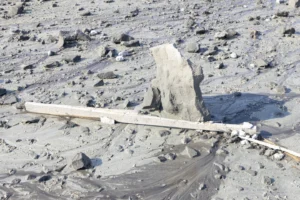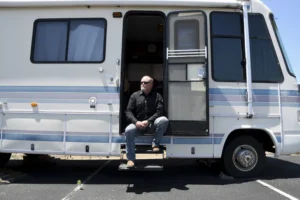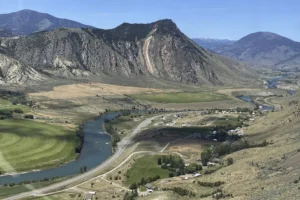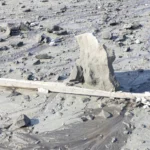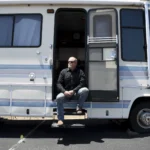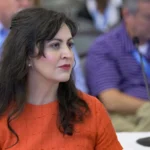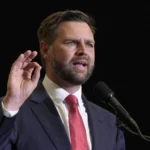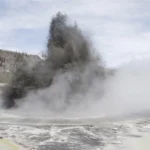Wyoming Residents Voice Concerns Over Proposed Rocky Mountain Power Rate Increases (Part 1)
Legislator says costs will ‘drive our neighbors out of business’
- Published In: Other News & Features
- Last Updated: Aug 26, 2023

Rep. Jon Conrad (R-Mountain View) spoke against a proposed rate increase sought by Rocky Mountain Power at a public hearing of the Wyoming Public Service Commission Thursday. (Screenshot via Zoom)
By Carrie Haderlie
Special to the Wyoming Truth
So many people packed a public hearing in Casper on proposed Rocky Mountain Power rate increases Thursday that the Wyoming Public Service Commission had to set up an overflow room in the Thyra Thomson State Office Building.
Nearly all public comment was in opposition to potential Rocky Mountain Power rate increases. The company has requested the Public Service Commission review and approve a surcharge on customer bills amounting to a total of $50.3 million, based on “increased fuel costs and power purchased on the wholesale market during 2022.” Another Rocky Mountain Power application seeks to increase Wyoming retail rates by approximately $140.2 million per year—or 21.6 percent on average.
If the surcharge is approved, the average residential customer using 660 kilowatt-hours per month will see an increase of approximately $3.52 on their monthly bill, according to Rocky Mountain Power. For over two hours during the public hearing, not a single person commented in favor of the increase. The Commission heard comments from state officials, county and city officials and members of the public.
Few supporters at public hearing
Some said the rate increases would affect small business owners in the oil and gas industry, while others asserted it would negatively affect Wyoming ranchers. Still others expressed concerns about how seniors on a fixed income would manage the increase, and one lawmaker specifically asked the commissioners how it would factor public comment into their final decision, which is anticipated by the end of the year.
Rep. Tony Locke (R-Casper) said that he opposes the increases because it does not fit into required state law as being “just and reasonable” and could actually raise rates by 29% to 30%.
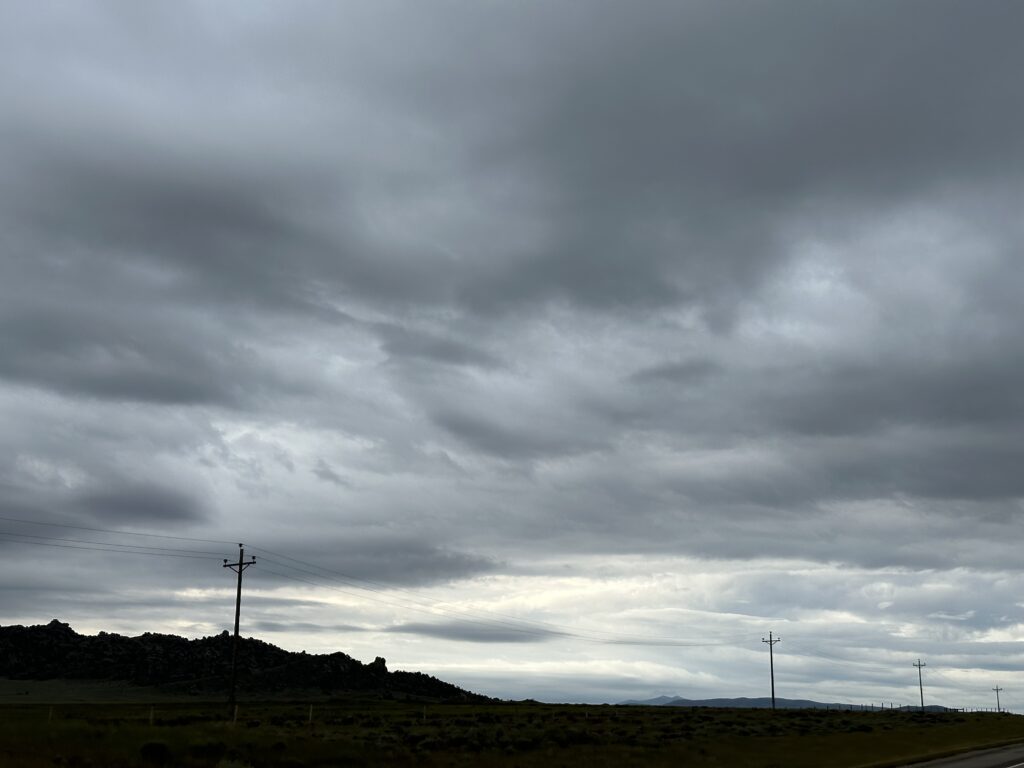
“These rate increases will have an impact on Wyoming families and businesses,” Locke said. “There is no doubt about that.”
Rep. Jon Conrad (R-Mountain View) shared the perspective of a constituent who predicted the increased electrical costs would be completely unmanageable.
“Quote, ‘I have hardly any money. I don’t know where I am going to get the money to pay for this. I just can’t do it,’ she said in tears,” Conrad told the Commissioners, further stating that unless Rocky Mountain Power customers “opt out” for solar power, they have nowhere else to turn.
“This utility is the only option,” he said. “If the customer cannot pay, eventually their electricity goes out. Electricity is not a discretionary spending issue. It is a pocketbook issue.”
Sen. Bob Ide (R-Casper) asked the Commissioners how they “negotiate” with companies like Rocky Mountain Power on rate increases.
“In the private world that I live in, when you come to the negotiating table with a big monopoly … you want the best, the brightest pitbulls,” Ide said. “I don’t understand the make-up, if you have full autonomy, this Commission, to negotiate with Rocky Mountain Power, the behemoth?”
Chairman Mary Throne said the Commission’s proceedings are evidentiary proceedings with witnesses, cross examinations, and “we sit in a quasi-judicial fashion.”
“We do not negotiate directly with the company,” Throne said, adding that on Oct. 25, the Commission will hold an evidentiary hearing where the company will present its witnesses, as well as any other parties. “We don’t negotiate.”
Other parties in the case, including the Office of Consumer Advocacy, can offer testimony, she said.
Rep. Tomi Strock (R-Douglas) said she opposes the rate increases and is concerned that mom-and-pop businesses in Wyoming would be adversely affected by them.
“Wyoming economy is driven by a few key industries, primarily the energy sector,” she said. “Eighty-five percent of the oil and gas industry is made up of businesses that classify as small businesses.”
For these businesses, electricity is the biggest non-labor cost, she said.
“These costs will drive our neighbors out of business,” Strock said. “Rocky Mountain Power owes Wyoming and this Commission clear answers to justify ‘fair and reasonable request’ in the public increase.”
Further, Strock expressed concern about Wyoming ranchers as well.
“A lot of ranchers use power to run their pivots, their sprinkler systems,” she said. “When you start with these rate increases, they won’t have that production. They won’t be able to run irrigation. It is going to kill Wyoming, these rate increases.”
Rep. Art Washut (R-Casper) directly asked the commissioners what weight public comment has in the decision-making process.
“I would just ask that the commission share with everyone in the room tonight how public comment and the impact on the rate payers will factor in to your decision making,” Washut said.
Ivan Williams, attorney supervisor for the Wyoming Public Service Commission, said that he could not assign public comment a specific weight in its decision making process, but said “public comment is important by virtue of the fact that we have” public hearings.
“This is a very complex process, and it is a legal process,” Williams said. “All evidence is taken into account by the commission. … All of that information weighs into the balance … [but] there is no formula that tells how the commission weighs that evidence.”
Governor calls for more public comment
On Aug. 21, Gov. Mark Gordon called on the Commission to hold additional public meetings on proposed power rate increases. As the largest utility in Wyoming, the Rocky Mountain Power rate increase “would impact thousands of Wyoming people and businesses,” Gordon said in a statement.
The Commission held its second public comment hearing in Casper Thursday, following one in Rock Springs in July, and plans to hold others in Laramie and Fremont County “in the near future,” according to Gordon’s office.
“This proposal is notable for the people of Wyoming, and I support the effort to make sure there is as much public engagement as possible ahead of any decision,” Gordon said.
The Commission is an independent agency and is not under the control of the governor’s office, but its three voting members are appointed for a six-year term by the governor. The Commission will make a determination on the requested rate increase by the end of the year.
Throne said Thursday night that the meeting in Casper would not be “the last time for public comment” on the rate increases. According to Gordon, there will be an opportunity for additional public comment during the final rate hearing beginning on Oct. 25.
On Friday, the Joint Corporations, Elections and Political Subdivisions Committee held an “educational session” on factors driving utility rate increases, hearing from the Commission and Rocky Mountain Power and taking public comment.
Check back tomorrow for part two, which will cover discussion at the committee meeting.

